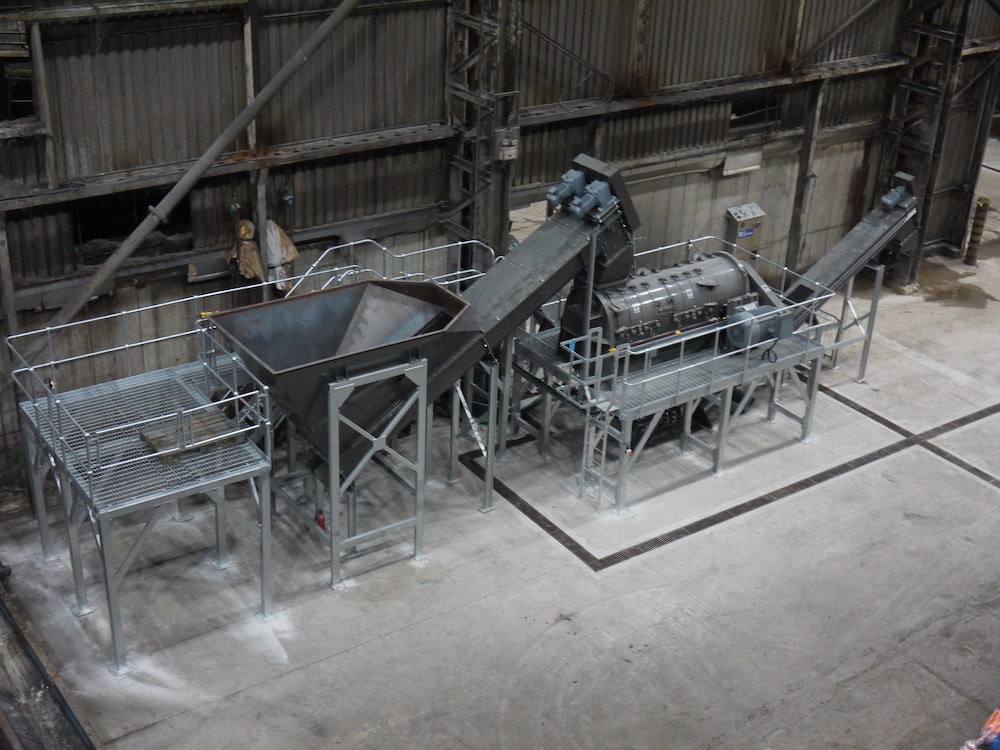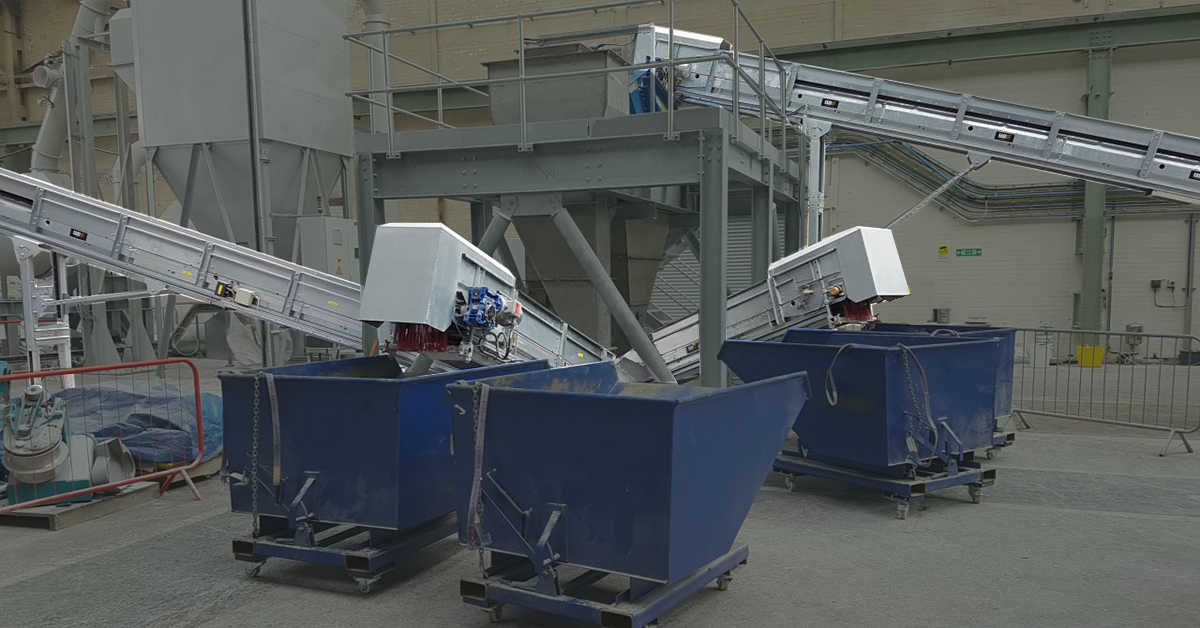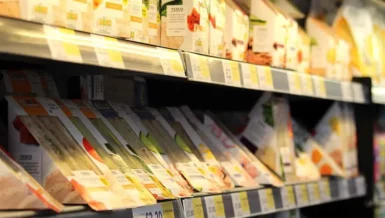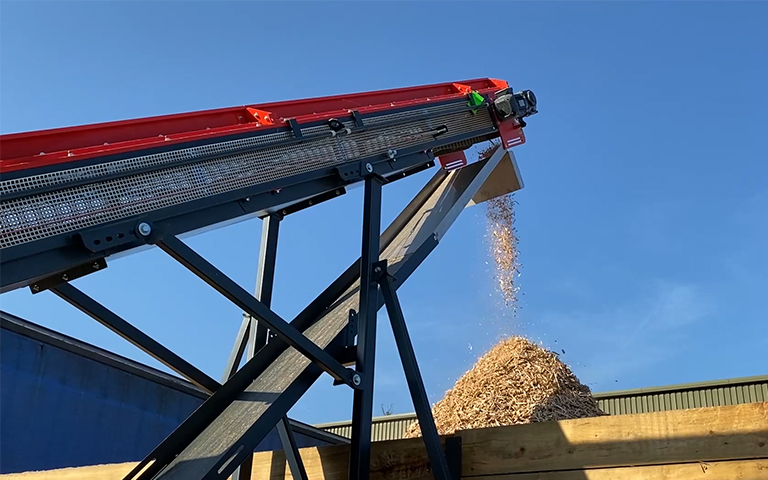During the 1990s they designed the Turbo Separator, a robust machine to remove large quantities of packaging from the contents quickly in order to recover useful organic material efficiently. As the development and growth of the agri-food to energy industry began to take off, the TS served as the workhorse for the recovery of packaged food waste, in particular for recovery for use in anaerobic digestion.
Its simplicity of design, durability and resistance allows a one-step process to extract organic food waste from packaging with, depending on the product, efficiency up to 99% material recovered.
TS can work wet or dry as needed; water or other liquid can be added during or after the separation process.
The range of Turbo Separators offers a choice of throughputs of 3 to 25 tonnes per hour of packaged waste treated. The system shows adaptability, ease of use, and a design allowing maintenance easy, as well as screens and tools interchangeable quickly.
The system offers great versatility which although is found mainly in waste treatment for AD it is also suitable for unpacking work for composters, and also animal feed manufacturers.

With over 250 systems sold on locations around the world, installations are found in Europe, Australasia, North America, and Africa.
Among the customers who have opted for our de-packaging systems, three have done so recently in replacement of other equipment that lacked sufficient versatility and efficiency in processing the variety of packaging to be treated.
In one example, Langage AD, backed by a dairy industry in Devon, southwest England, uses as inputs the by-products of the plant and food waste collected locally and treated thanks to TS for use as fertiliser and heat and power generation. Another example at the Ménez-Avel AD plant located in the Finistère department in France, recycles liquid manure, pork enriched with kitchen waste from communities, industrial waste
food and de-packaged food waste from the large distribution. The Turbo Separator allows it to go from 10 to 12 tonnes of mixed waste per hour of which 85% of this tonnage is recovered organics. The packaging part is sent in incineration. The digestate is composted with green waste used to grow vegetables in North Finistère.

























